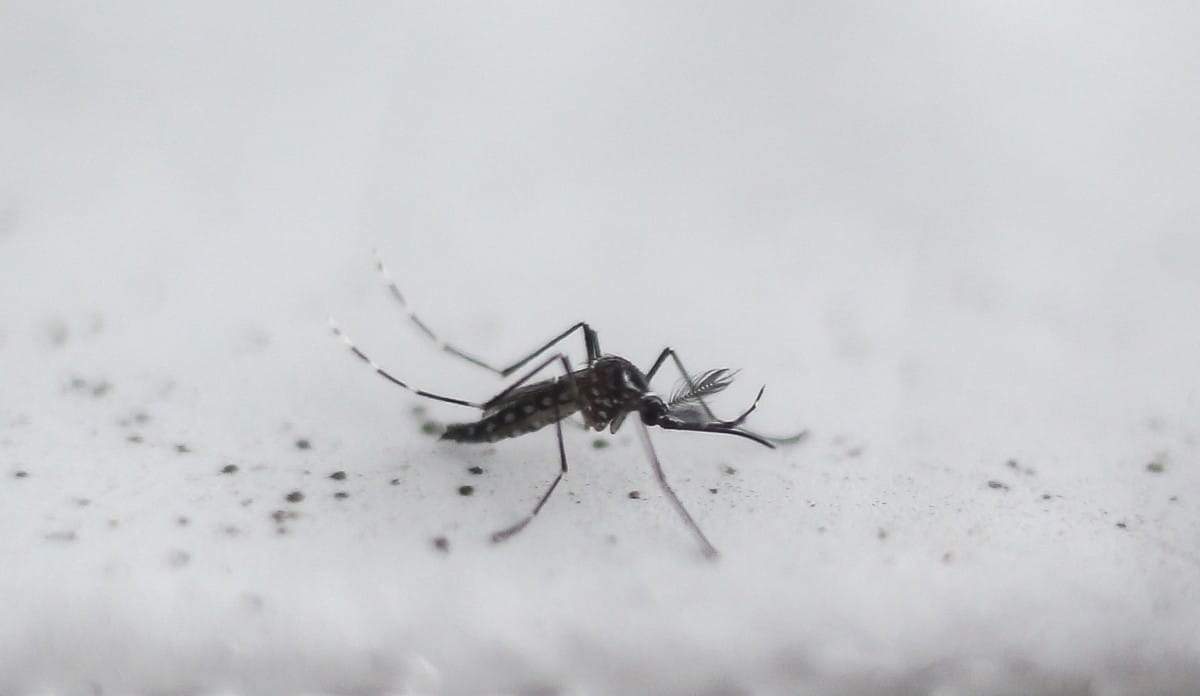

View a transgenic Aedes aegypti OX513A mosquito, created by Oxitec, in Piracicaba, Sao Paulo, Brazil on October 26, 2016. FILE PHOTO/Agence France-Presse
NAIROBI, Kenya — Tens of thousands of genetically modified mosquitos are being released every week in Djibouti as the tiny Horn of Africa state experiments with a new weapon against an unprecedented malaria surge.
East Africa faces a deadly new threat from the arrival of Anopheles stephensi, a mosquito native to Asia and the Middle East that thrives in urban areas and is immune to insecticides.
Article continues after this advertisementThe World Health Organization (WHO) says the species is a key factor in an unprecedented spike in malaria cases in Djibouti and Ethiopia, and has been found in six other African countries so far.
FEATURED STORIES GLOBALNATION Marcos says he had 'friendly, productive' phone call with Trump GLOBALNATION Customs broker, 2 others guilty over shipment of P6.4B shabu GLOBALNATION Mary Jane Veloso's transfer to PH facility under discussion – DFAREAD: Using new gene drive to create malaria-resistant mosquitoes
In 2019, Abdoulilah Ahmed Abdi, health adviser to Djibouti’s presidency, heard about a new invention being used primarily in Brazil against a dengue-carrying mosquito.
Article continues after this advertisementThe so-called “Friendly” mosquito, created by British biotechnology firm Oxitec, is a genetically modified male that carries a protein ensuring its offspring will not survive.
Article continues after this advertisementSince only females bite, the idea is that GM males can be released in vast numbers without posing an additional risk to humans.
Article continues after this advertisementDjibouti launched the program in May with the release of 40,000 GM mosquitos and on October 6, began weekly releases that will run for six months.
READ: Changing mosquito genes, spreading bacteria: Science sees success vs dengue
Article continues after this advertisement“We are trying to find with our partner Oxitec an innovative and sustainable solution that could have an impact on the whole region and the continent at large,” said Abdi.
“We are very proud of it. It’s an initiative for all Africa,” he added.
Abdi said results were expected by mid-2025 and that Djibouti was also building a factory to produce the mosquito for shipment across Africa.
Hopes and challengesOxitec has released well over one billion GM mosquitos in Brazil and Florida in the United States, where it targets the dengue-carrying Aedes aegypti.
Its studies indicate it can reduce wild populations by 90 percent or more.
“There’s nothing better at finding the biting disease-transmitting female mosquito than a male mosquito,” Neil Morrison, Oxitec’s chief strategy officer, told AFP.
He emphasized the Djibouti program was still at a pilot stage.
“Early next year, we’ll start to figure out how many mosquitoes we’ll need to release to deliver suppression,” he said.
GM mosquitos are controversial with some environmentalists.
A 2019 report led by GeneWatch UK said Oxitec’s technology risked altering the evolution of mosquitos and the way diseases spread, in potentially dangerous ways.
It questioned Oxitec’s claims of efficacy, saying it could inadvertently release many females alongside its sterile males, or simply push wild mosquitos into neighboring areas.
Oxitec insists its GM mosquito is “completely harmless and non-toxic” and regulators cleared it for deployment in the US in 2022.
But if GM mosquitos must be continuously released to be effective, there is the question of cost — a key factor in Africa, which accounts for around 95 percent of the 600,000 malaria deaths each year.
Oxitec refused tell AFP how much its mosquitos cost to governments and private buyers.
Outside experts are taking a wait-and-see approach.
“We are very supportive of innovation,” said Dorothy Achu, WHO’s head of tropical and vector-borne diseases in Africa.
She said WHO was working on a regulatory framework to measure the impact of GM methods.
Subscribe to our daily newsletter
“Initial results are very promising but we need things that are sustainable over time and we need impact on wide areasdoubleu casino,” said Achu.
READ NEXT With Marco Rubio as top diplomat, US to increase focus on Lati... Sunshine state of mind: Trump taps Florida neighbors for top jobs EDITORS' PICK PDEA, DDB open to downgrading marijuana from dangerous drugs list Group calls on Victoria Kjaer Theilvig to decry ‘exploitation’ of ‘blood pearls’ Kris Aquino grateful as son Josh recovers from COVID-19 PNP cautions malls vs guards in Christmas costumes Marcos says he had ‘friendly, productive’ phone call with Trump Trump confirms plans to use military in mass deportations MOST READ Comelec lists approved areas for mock elections, no date set yet Peso may fall to 59, BSP to intervene House insists on ‘ayuda’ Senate wants to defund Pagasa says 3 weather systems to bring cloudy skies, rains Nov 19 Follow @FMangosingINQ on Twitter --> View comments